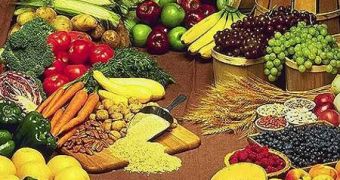As the population of our planet grows ever larger, statistics and estimates warn of an impending threat on our race, namely food shortages. Not accounting for the possible effects of global warming over the next decades, scientists believe that the amount of food the existing production surfaces will create will not be enough to sustain a massive population boom over the next years. Researchers around the world are looking at solutions for this problem, and some have taken the effort a step further. Japanese bioengineers are for instance testing out the idea of growing vegetables and other plants in the lab, under perfect conditions, with just the exact amount of light, air and heat required for maximum yield.
In addition, the plants are not even grown in soil, LiveScience reports, and only receive water and nutrients to grow. Although their stance may seem a bit over-the-edge, the world has in recent years proven that it can't take care of its own. With more than 2 billion people living below the standard of poverty, and with the global food crisis still ongoing after 3 years, global leaders have proven that there is no political and economical will of cooperation among nations, when it comes to helping others.
As such, it would stand to reason that each country try and protect its own food production capabilities. In the case of Japan, where there isn't much room for agriculture to begin with, the necessity is especially vital. Securing a large internal food production could in the future give nations that are now considered to be “underdeveloped” a powerful trading and bargaining tool, which could help further their agenda at that moment. In the US, for example, people have already proven in recent studies that they are willing to pay more money on locally grown food than for that in the supermarkets, equally because it tastes better and it also supports the local community.
On the other hand, Japan employs a “picked today, eaten tonight”-type of scheme, which ensures that consumers always get the most fresh products, picked only when it's their time. This model differs substantially from that of the United States, where produces are picked way before their time, and only ripe inside trucks, boats, trains or airplanes, under artificial or no light at all. The quality of the end-product, which the consumer buys, is therefore lower than in other countries; and this is one of the main reasons why people have started supporting their local producers, which sell better merchandise.
Some scientists argue that people will eventually have to pass over their disgust with genetically modified organisms (GMO), if the entire population of the world is to be fed. But others argue that the damage that these types of crops cause is reason enough for not accepting them. Additionally, they say, not even now, when we have the ability to feed the world's poor, efforts are not being made in that direction, and there is little chance that a growing number of people worldwide would change that.

 14 DAY TRIAL //
14 DAY TRIAL //